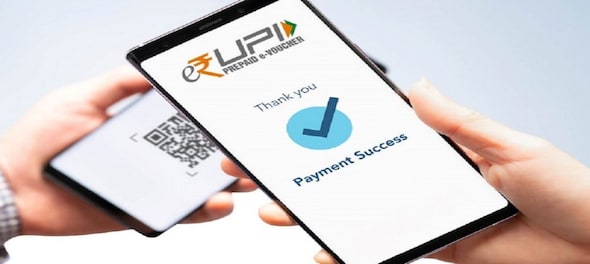
The Reserve Bank of India (RBI) has increased the limit on money transferred through unified payment interface (UPI) — i.e. payment apps like Paytm, Google Pay, PhonePe as well as similar services provided by the banks etc. — to ₹5 lakh per day.
Live TV
Loading...
This is applicable to payments made at hospitals and educational institutions. The change was announced by the RBI governor Shaktikanta Das after the latest monetary policy review by the Indian central bank.
Right now, the UPI transaction limit set by the National Payments Council of India (NPCI) is ₹1 lakh per day.
According to Jyoti Prakash Mahapatra, CFO at Ruby Hall Clinic, both patients and hospitals will benefit significantly from this development, as it addresses existing challenges in an era of seamless and efficient transactions.
Shivaji Thapliyal, Head of Research and Lead Analyst at Yes Securities, added a perspective on the potential impact of this change. He highlighted that traditionally, large-value retail digital transactions have been primarily facilitated through credit cards.
"It remains to be seen to what extent allowance of higher UPI payments to hospitals and educational institutions would shift transaction value away from credit cards," Thapliyal said.
UPI recorded 11.24 billion transactions in November 2023, reaching a transaction value of ₹17.40 trillion, according to data issued by the NPCI.

The RBI has also increased the limit for e-mandate, or auto-debit as many people call it, to ₹1 lakh per transaction. This can be used for buying mutual funds via SIP (systematic investment plans) as well as to pay insurance premiums regularly. It can be used for credit card payments, too.
"Under this framework, an additional factor of authentication (AFA) is currently required for recurring transactions exceeding ₹15,000. It is now proposed to enhance this limit to ₹1 lakh per transaction. This measure will further accelerate the usage of e-mandates," Governor Das said.
This means that for transactions up to ₹1 lakh, the additional factor of authentication won't be mandatory now. It's aimed at making it easier for individuals to set up and use e-mandates for larger transactions.
(Edited by : Amrita)
First Published: Dec 8, 2023 10:44 AM IST
Check out our in-depth Market Coverage, Business News & get real-time Stock Market Updates on CNBC-TV18. Also, Watch our channels CNBC-TV18, CNBC Awaaz and CNBC Bajar Live on-the-go!


PM Modi's Patna visit: From serving langar to historic roadshow
May 13, 2024 5:13 PM
Shehnai by Ustad Bismillah Khan's kin, ode to Kashi's celebrities: PM Modi's roadshow to showcase Varanasi's grandeur
May 13, 2024 11:03 AM

